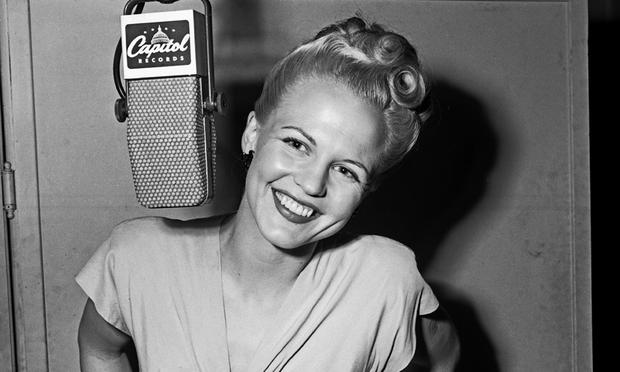A youth there was among the tribes of Troy,
Dolon his name, Eumedes' only boy,
(Five girls beside the reverend herald told.)
Rich was the son in brass, and rich in gold;
Not bless'd by nature with the charms of face,
But swift of foot, and matchless in the race.
"Hector! (he said) my courage bids me meet
This high achievement, and explore the fleet:
But first exalt thy sceptre to the skies,
And swear to grant me the demanded prize;
The immortal coursers, and the glittering car,
That bear Pelides through the ranks of war.
Encouraged thus, no idle scout I go,
Fulfil thy wish, their whole intention know,
Even to the royal tent pursue my way,
And all their counsels, all their aims betray."
The chief then heaved the golden sceptre high,
Attesting thus the monarch of the sky:
"Be witness thou! immortal lord of all!
Whose thunder shakes the dark aerial hall:
By none but Dolon shall this prize be borne,
And him alone the immortal steeds adorn."
Thus Hector swore: the gods were call'd in vain,
But the rash youth prepares to scour the plain:
Across his back the bended bow he flung,
A wolf's grey hide around his shoulders hung,
A ferret's downy fur his helmet lined,
And in his hand a pointed javelin shined.
Then (never to return) he sought the shore,
And trod the path his feet must tread no more.
Scarce had he pass'd the steeds and Trojan throng,
(Still bending forward as he coursed along,)
When, on the hollow way, the approaching tread
Ulysses mark'd, and thus to Diomed;
"O friend! I hear some step of hostile feet,
Moving this way, or hastening to the fleet;
Some spy, perhaps, to lurk beside the main;
Or nightly pillager that strips the slain.
Yet let him pass, and win a little space;
Then rush behind him, and prevent his pace.
But if too swift of foot he flies before,
Confine his course along the fleet and shore,
Betwixt the camp and him our spears employ,
And intercept his hoped return to Troy."
With that they stepp'd aside, and stoop'd their head,
(As Dolon pass'd,) behind a heap of dead:
Along the path the spy unwary flew;
Soft, at just distance, both the chiefs pursue.
So distant they, and such the space between,
As when two teams of mules divide the green,
(To whom the hind like shares of land allows,)
When now new furrows part the approaching ploughs.
Now Dolon, listening, heard them as they pass'd;
Hector (he thought) had sent, and check'd his haste,
Till scarce at distance of a javelin's throw,
No voice succeeding, he perceived the foe.
As when two skilful hounds the leveret wind;
Or chase through woods obscure the trembling hind;
Now lost, now seen, they intercept his way,
And from the herd still turn the flying prey:
So fast, and with such fears, the Trojan flew;
So close, so constant, the bold Greeks pursue.
Now almost on the fleet the dastard falls,
And mingles with the guards that watch the walls;
When brave Tydides stopp'd; a gen'rous thought
(Inspired by Pallas) in his bosom wrought,
Lest on the foe some forward Greek advance,
And snatch the glory from his lifted lance.
Then thus aloud: "Whoe'er thou art, remain;
This javelin else shall fix thee to the plain."
He said, and high in air the weapon cast,
Which wilful err'd, and o'er his shoulder pass'd;
Then fix'd in earth. Against the trembling wood
The wretch stood propp'd, and quiver'd as he stood;
A sudden palsy seized his turning head;
His loose teeth chatter'd, and his colour fled;
The panting warriors seize him as he stands,
And with unmanly tears his life demands.
"O spare my youth, and for the breath I owe,
Large gifts of price my father shall bestow:
Vast heaps of brass shall in your ships be told,
And steel well-temper'd and refulgent gold."
To whom Ulysses made this wise reply:
"Whoe'er thou art, be bold, nor fear to die.
What moves thee, say, when sleep has closed the sight,
To roam the silent fields in dead of night?
Cam'st thou the secrets of our camp to find,
By Hector prompted, or thy daring mind?
Or art some wretch by hopes of plunder led,
Through heaps of carnage, to despoil the dead?"
Then thus pale Dolon, with a fearful look:
(Still, as he spoke, his limbs with horror shook:)
"Hither I came, by Hector's words deceived;
Much did he promise, rashly I believed:
No less a bribe than great Achilles' car,
And those swift steeds that sweep the ranks of war,
Urged me, unwilling, this attempt to make;
To learn what counsels, what resolves you take:
If now subdued, you fix your hopes on flight,
And, tired with toils, neglect the watch of night."
"Bold was thy aim, and glorious was the prize,
(Ulysses, with a scornful smile, replies,)
Far other rulers those proud steeds demand,
And scorn the guidance of a vulgar hand;
Even great Achilles scarce their rage can tame,
Achilles sprung from an immortal dame.
But say, be faithful, and the truth recite!
Where lies encamp'd the Trojan chief to-night?
Where stand his coursers? in what quarter sleep
Their other princes? tell what watch they keep:
Say, since this conquest, what their counsels are;
Or here to combat, from their city far,
Or back to Ilion's walls transfer the war?"
Ulysses thus, and thus Eumedes' son:
"What Dolon knows, his faithful tongue shall own.
Hector, the peers assembling in his tent,
A council holds at Ilus' monument.
No certain guards the nightly watch partake;
Where'er yon fires ascend, the Trojans wake:
Anxious for Troy, the guard the natives keep;
Safe in their cares, the auxiliar forces sleep,
Whose wives and infants, from the danger far,
Discharge their souls of half the fears of war."
"Then sleep those aids among the Trojan train,
(Inquired the chief,) or scattered o'er the plain?"
To whom the spy: "Their powers they thus dispose
The Paeons, dreadful with their bended bows,
The Carians, Caucons, the Pelasgian host,
And Leleges, encamp along the coast.
Not distant far, lie higher on the land
The Lycian, Mysian, and Maeonian band,
And Phrygia's horse, by Thymbras' ancient wall;
The Thracians utmost, and apart from all.
These Troy but lately to her succour won,
Led on by Rhesus, great Eioneus' son:
I saw his coursers in proud triumph go,
Swift as the wind, and white as winter-snow;
Rich silver plates his shining car infold;
His solid arms, refulgent, flame with gold;
No mortal shoulders suit the glorious load,
Celestial panoply, to grace a god!
Let me, unhappy, to your fleet be borne,
Or leave me here, a captive's fate to mourn,
In cruel chains, till your return reveal
The truth or falsehood of the news I tell."
To this Tydides, with a gloomy frown:
"Think not to live, though all the truth be shown:
Shall we dismiss thee, in some future strife
To risk more bravely thy now forfeit life?
Or that again our camps thou may'st explore?
No—once a traitor, thou betray'st no more."
Sternly he spoke, and as the wretch prepared
With humble blandishment to stroke his beard,
Like lightning swift the wrathful falchion flew,
Divides the neck, and cuts the nerves in two;
One instant snatch'd his trembling soul to hell,
The head, yet speaking, mutter'd as it fell.
The furry helmet from his brow they tear,
The wolf's grey hide, the unbended bow and spear;
These great Ulysses lifting to the skies,
To favouring Pallas dedicates the prize:
"Great queen of arms, receive this hostile spoil,
And let the Thracian steeds reward our toil;
Thee, first of all the heavenly host, we praise;
O speed our labours, and direct our ways!"
This said, the spoils, with dropping gore defaced,
High on a spreading tamarisk he placed;
Then heap'd with reeds and gathered boughs the plain,
To guide their footsteps to the place again.





